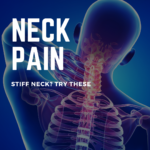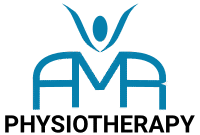Neck Discomfort
Neck discomfort is a very common issue these days. In most cases, these issues start due to prolonged sedentary positions i.e. desk jobs, long traveling times. In other cases, neck pain is caused by an injury like a fall, sports injury, or road traffic accident. Overall, neck discomfort can be frightening and worrying.
However, in most cases, it is the same as any other injury or pathology. If left unaddressed though, it could become a chronic problem. Most of the neck symptoms consist of pain, stiffness, and muscle tightness. It is not unusual to experience tingling or numbness sensation. Occasionally, neck pain can cause headaches
Questions
As a clinician the important questions that we try to answer with all conditions including neck pain are:
- Is there a structural issue?
- What can be done to help you?
- Is there anything that patients can do to help themself?
- How long it will take to get better?
Structe of the neck
The structure of the neck and back are made up of small bones called vertebrae. These are stacked on top of each other to form the spinal column. The spinal column supports your head and protects the spinal cord. This is the main structure that links the network of nerves throughout your body. Messages travel along this network sending sensations, such as pain, to your brain. To support the spine, even more, ligaments and muscles attach to the vertebrae. Any of these structures could potentially cause discomfort or pain.
Treatment approach
In most cases, exercises that work on movement, strength, and proprioception will make a positive effect on the pain. Besides, manual therapy provided by a clinician can help to aid the treatment.
Exercises
If you wish to try some of the neck exercises yourself please consider visiting our Instagram, Facebook and Youtube pages. We have put a list of exercises that may help to improve your function and hopefully reduce the pain you are in. There are two videos at the bottom of this blog with some exercises we would recommend trying.
Timeframes
Finally, to answer the question of how long it will take to get better is very subjective and depends on an individual case. Factors like your age, fitness level, diet, tobacco, and alcohol intake also play a part.
AMR Physiotherapy
However, we at AMR Physiotherapy Nottingham will help you to try to answer those four main questions and get you on the path to recovery. If you wish to book an appointment, please press on this link.
If you experience symptoms such as weakness in your arms or legs, loss of balance, bowel and bladder issues, or loss of consciousness, you need to consult with your doctor immediately.




